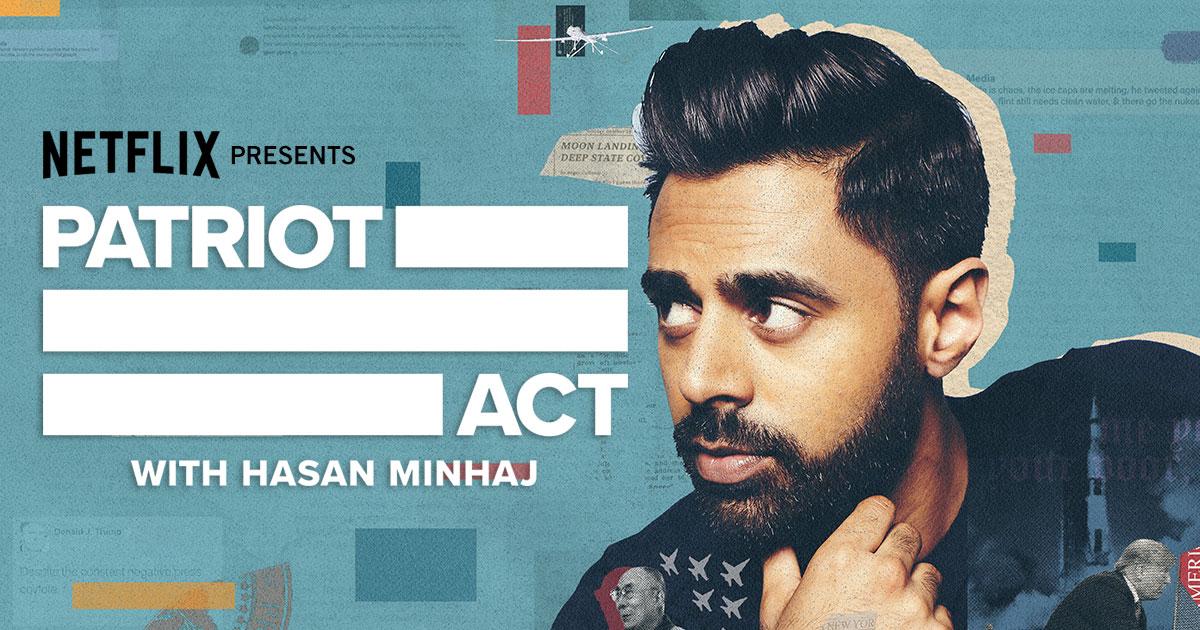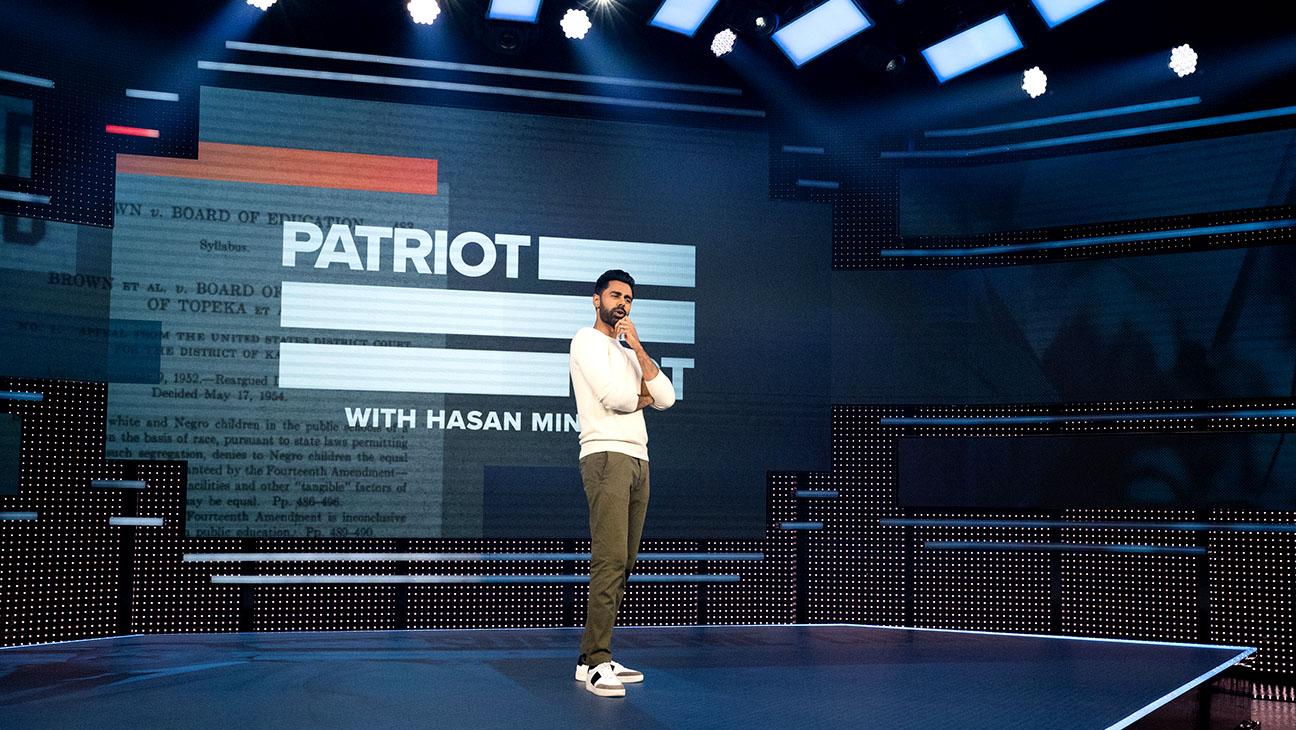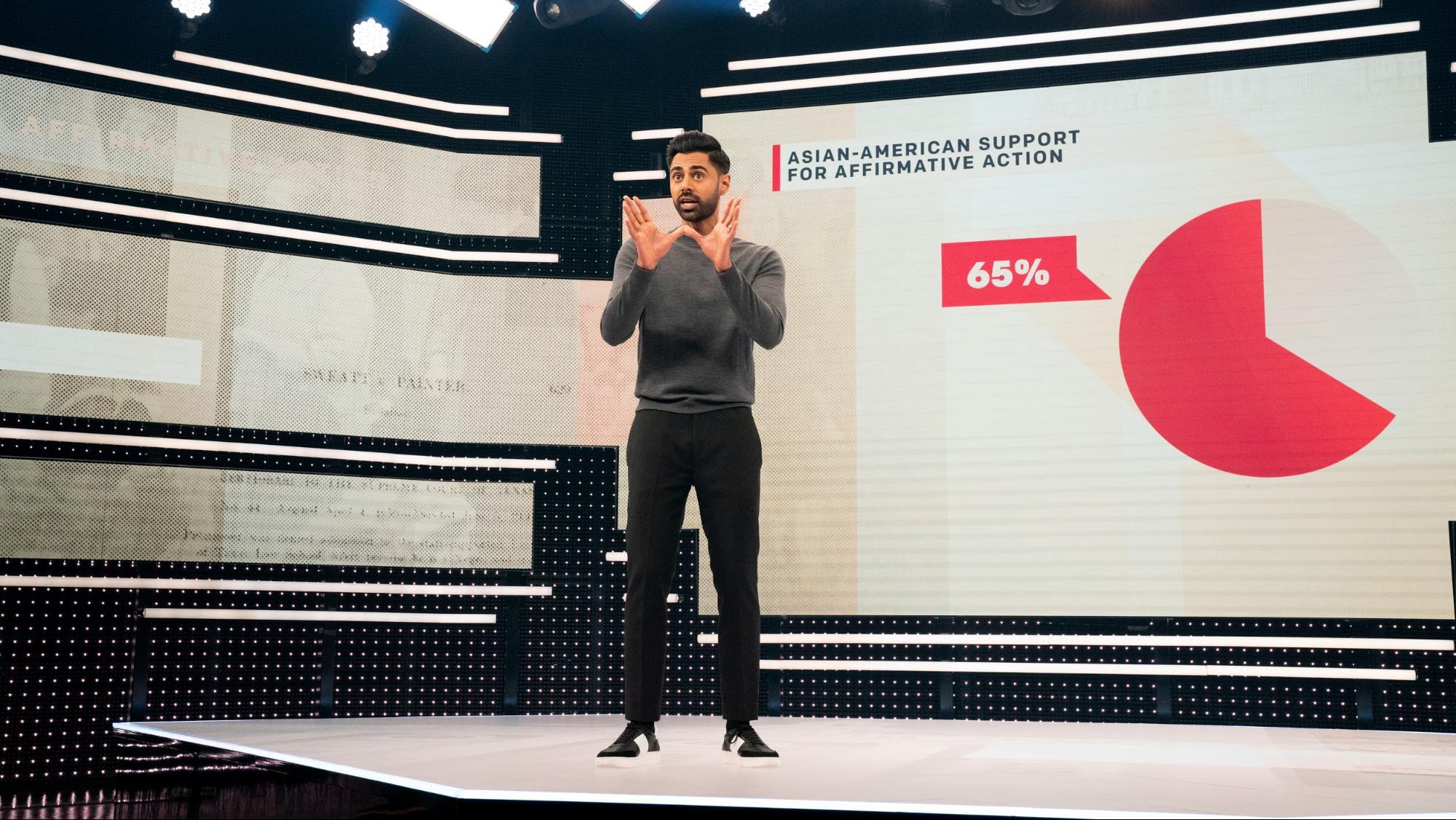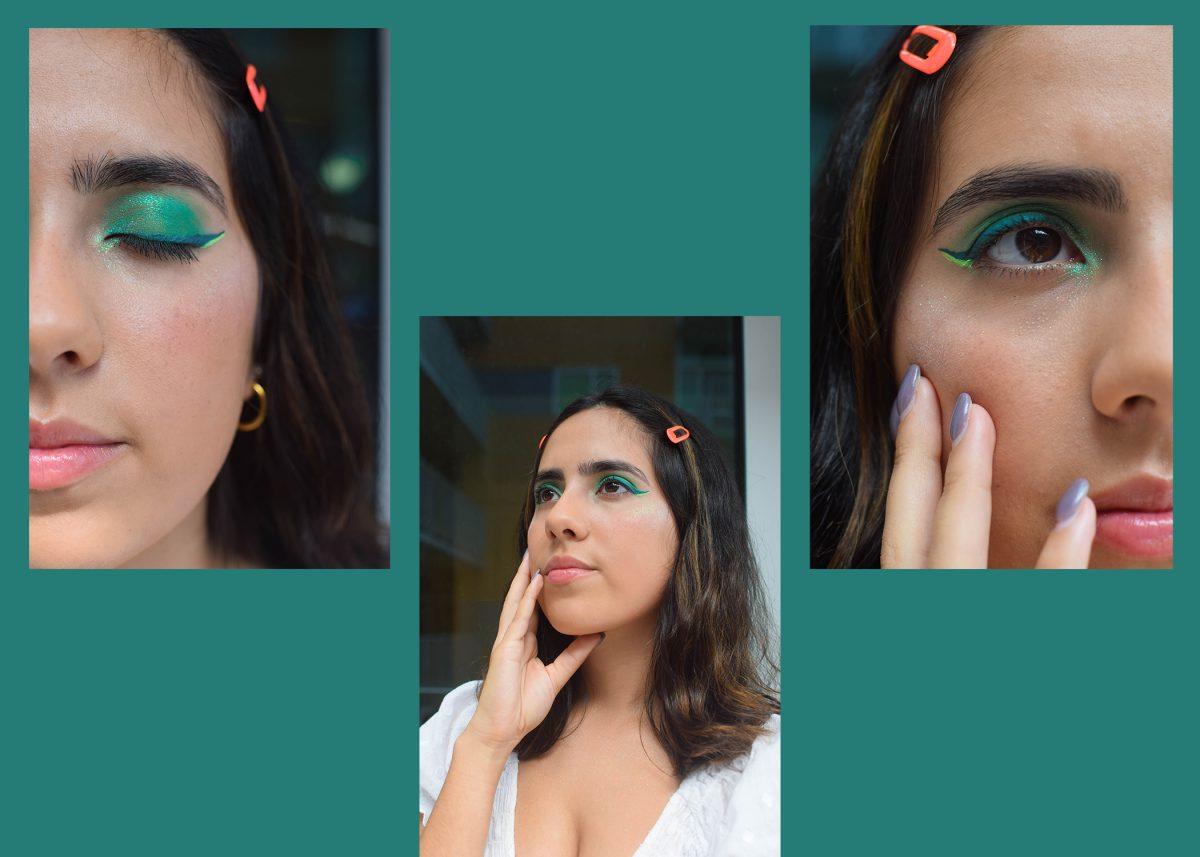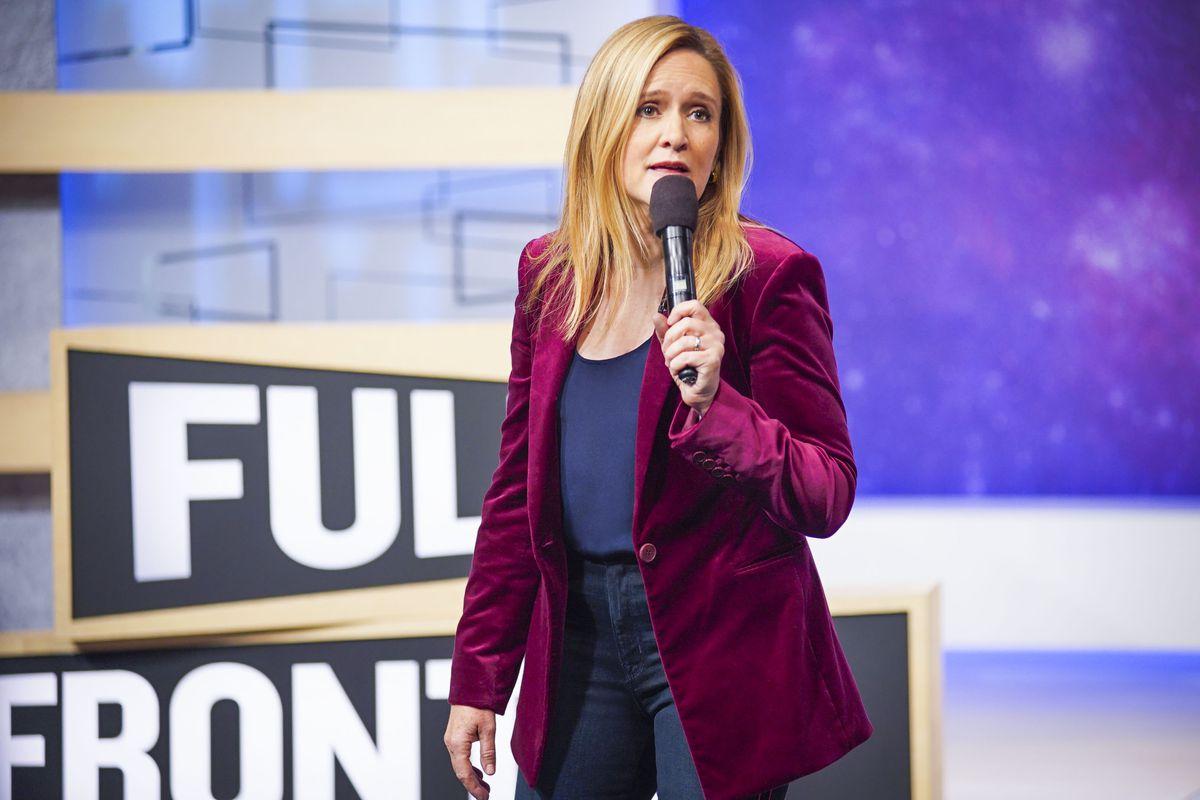Hasan Minhaj’s news commentary-standup hybrid on Netflix diversifies late-night comedy in a way that is not only fresh, but vital.
Story by Zoe Judilla
“Think of a funny investigative report meets comedy show, meets political satire, meets Malcolm Gladwell, but funny — and it’s all on a bunch of screens, like a Drake concert.”
Photo courtesy of Netflix
That’s how comedian Hasan Minhaj describes “Patriot Act,” his sharp, new late-night talk show, with episodes added weekly on Netflix. The biting political satire is a timely news commentary/standup hybrid that embraces the contemporary, ushering in a fresh edition of infotainment for the current generation.
Known previously for his work as a correspondent on “The Daily Show,” Minhaj’s popularity grew in response to his first Netflix stand-up special, “Hasan Minhaj: Homecoming King.” He was then the featured speaker at the 2017 White House Correspondents’ Dinner, where he famously roasted President Donald Trump and his administration. Patriot Act is Minhaj’s first solo talk show following his departure from The Daily Show earlier this year.
Each episode of Patriot Act is a 20-minute stand-up set with Minhaj simultaneously executing an in-depth and amusing analysis of a particular subject. The format isn’t necessarily innovative – it’s closely modeled after fellow Daily Show alum John Oliver’s “Last Week Tonight” monologues. But Minhaj trades in the traditional late-night talk show desk with a charged pace, continuously staying on his feet, and scraps the standard New York skyline background with a set that he describes looks like if “Michael Bay directed a PowerPoint presentation.” With a backdrop that displays a synthesis of multimedia aides for the viewer, to provide context and deeper understanding of the subject, Minhaj is successful in making his “woke TED Talk” as accessible as possible to a modern audience.
The comedic strengths of the show lie in the charismatic delivery of Minhaj as he eagerly, and carefully, weaves politics with worldly analysis. The show’s timely entry point emphasizes concise and accurate reporting intertwined with historical context, current events, and personal asides, which range from Kumon horror stories to fascinations with “My Strange Addiction.”
However, it is undeniable that what distinguishes Patriot Act from any other talk show on television is its ability to speak directly to American minorities – Minhaj is the first Indian-American to front such a program and he leans heavily into his identity to break ground in diversifying late-night comedy.
Photo courtesy of The Hollywood Reporter
The first episode is acutely aware of this as it delves into affirmative action, a topic focused on the inclusion of diverse voices in order to accurately depict the world around us. Minhaj hones in on the anti-affirmative action group Students for Fair Admissions, which famously fronted Abigail Fisher’s affirmative action case against the University of Texas at Austin. The episode dismantles Asian-American support of Students for Fair Admissions during the current lawsuit filed against Harvard University, as white activists are leveraging complaints that Asian-Americans have been discriminated against.
Minhaj speaks bluntly, but also has the ability to joke about schools that only look at test scores – “Caltech had nine black students; there were more black people in the Wu-Tang Clan.” – and even exposes his own fears as a naive high schooler about revealing his race when applying to colleges – “I thought I wasn’t going to get into Stanford because some black kid was going to take my spot,” Minhaj says. “But I didn’t get into Stanford because I was dumb.”
Additionally, he does not shy away from issues such as anti-black sentiments in Asian immigrant communities, which are rarely ever addressed in media. “You hear that a lot with racism — ‘Hey, be grateful. It’s not as bad as it used to be.’ You wouldn’t tolerate that with Wifi! Like if you called Comcast and said, ‘My internet’s really slow right now,’ and they said, ‘Hey — it’s not as bad as it used to be! Remember dial-up?’ You would kill that person! That’s why I think this lawsuit against Harvard is bullshit.”
Photo courtesy of Variety
As Minhaj leaps from pop-culture references to providing historical context, he manages to successfully hone the insider approach without making any of his discussion topics come from an alienating place. As a result, his comedy speaks to a broader audience, though it remains aware of the marginalized communities he is speaking both to and for.
This becomes even clearer during the second episode, which addresses the assassination of Washington Post journalist Jamal Khashoggi and explores American reception of the Saudi Arabian crown prince Mohammed bin Salman. Minhaj additionally critiques Indian-American conservatives, questions the oversight done by the US in praising the crown prince and ties the political turmoil back to his faith as an Indian-American Muslim. On his critique of the Saudi Arabia and US relations, Minhaj remarks, “Saudi Arabia was basically the boy band manager of 9/11. They didn’t write the songs, but they helped get the group together.”
In addition to racially-aware themes, future episodes are likely to include topics not necessarily directly related to Minhaj’s identity, such as the third episode that disseminates the rise of (and Minhaj’s unhealthy obsession with) Amazon. Minhaj has also previously mentioned that Patriot Act aims to focus on worldly issues, not just solely American politics.
Moreover, Minhaj’s work on Patriot Act is proving itself to be Netflix’s best offering of the late-night comedy genre. With a preemptive 32-episode order and generally positive reception, the show sets itself apart from the usual comedic format in not only its modernization tactics, but also in the things Minhaj has to say. He is both conscious and thoughtful in an overtly chaotic political climate, and offers an alternative to the traditional white male perspective that has historically led late-night television.
Alongside co-creator and longtime collaborator Prashanth Venkataramanujam, Minhaj provides solace in a space greatly lacking in fresh perspectives. With wit, charm and a much-needed change of pace, perhaps we need someone like Minhaj to revive the increasingly-dreaded political comedy genre. Perhaps his time is now.
































